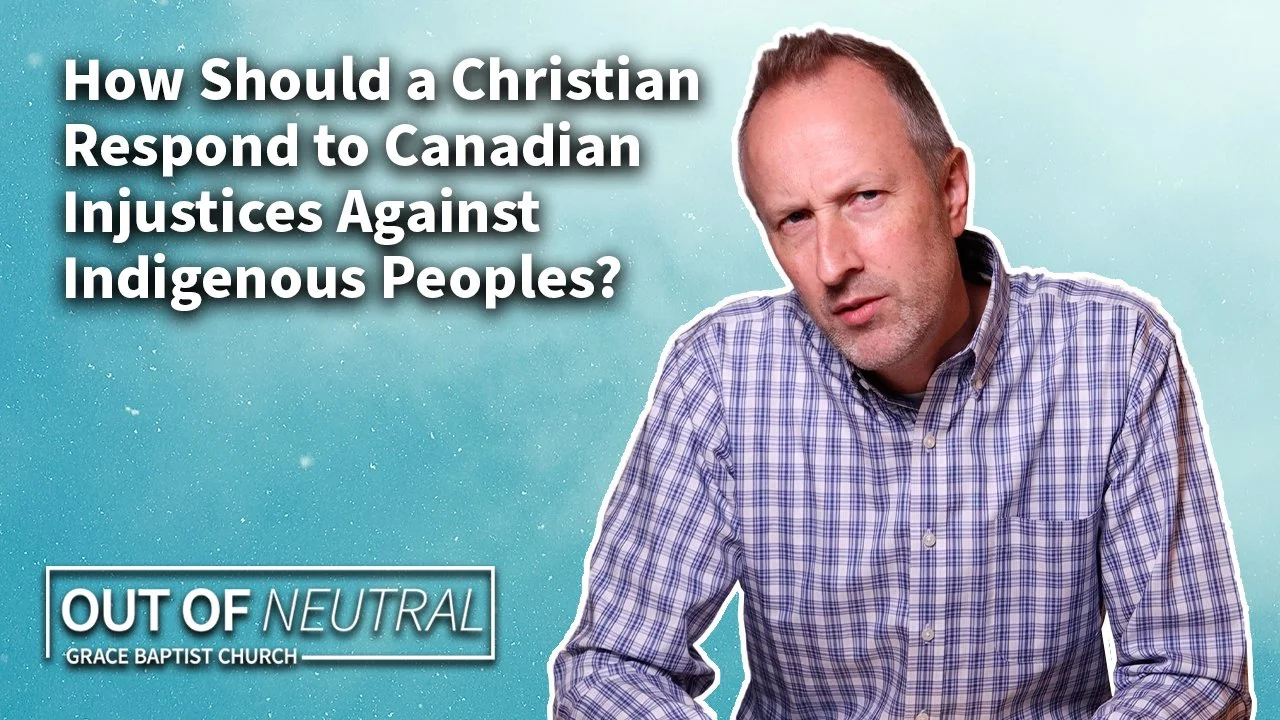Click on the image above for the video of this article or keep reading below for the text version.
Every so often, something will happen to trigger a national conversation about injustice against Indigenous peoples in Canada. Sometimes, it’s the disappearance or death of an Indigenous woman that doesn’t seem to have been adequately investigated. Other times, it’s a dispute over a land claim. This summer, it was the reports of the graves of Indigenous children associated with residential schools that brought the conversation to a head. When this happens, people search for ways to respond. For some, that has meant anger or vandalism. For others, politicization or indifference. And some have responded with hashtags, T-shirts, and land acknowledgements. Over the last number of months, I have sought to listen. I’ve listened to the partners we support in Indigenous ministry. I’ve listened to the findings of the Truth and Reconciliation Commission. I’ve listened to the Calls to Action. And I’ve tried to ask: How should we respond? Let me share what I’ve heard.
1. Listen to the survivors
The most basic dignity we can offer anyone who feels hurt by our actions is a listening ear. I have appreciated Nick Helliwell’s encouragement in this regard. Of Nehiyawak (Plains Cree) descent himself, Nick works primarily with Indigenous men both within the correctional system as well as in the community where he serves. In his article, “A Somber Summer,” He urges people to listen and to listen well. He writes, “These days, I have spent much time listening to the grief and anger being poured out, having absolutely nothing to say. Like listening to Holocaust survivors, there is nothing that can be said.” The goal he says is to empathize rather than apologize. We need to hear the grieving of Indigenous People on their own terms.
2. Lament the injustice in our history
Once we have listened to survivors, we need to become familiar with the history. We can’t learn from history that we’re not familiar with. As I began to do some reading, I realized how ignorant I was about the toll that Canada’s colonial past had inflicted upon First Nations, Métis, and Inuit Peoples. That much of that injustice was done in the name of our God is all the more grievous. The biblical response to historical injustice is lament. We grieve the pain that people have felt and the damage that has been wrought in their lives. We look to God because He alone is just and able to bring about the justice that we all long for.
3. Examine your heart
Speaking with Walter Selke, the General Director of the Northern Canada Evangelical Mission, I heard about the trauma, prejudice, and injustice that many Indigenous Peoples live with every day. I think we all need to question whether there are ways that we discriminate against Indigenous Peoples in our social relationships, employment-related interaction, or our politics. James warns against the sin of partiality and looking down on people based on their externals, asking: “Have you not then made distinctions among yourselves and become judges with evil thoughts” (James 2:4).
4. Pray for a new day
The past cannot be undone, but many Indigenous people live with its shadow looming over them. We need to pray for God to bring a new day. There are more than 1.5 million Indigenous Canadians today, and there may be as many as 100,000 in the GTA. One statistic says that despite their relatively small number, Indigenous children represent 52% of those currently in social services care. Pray for healing. Pray for recovery. Pray for justice. Pray for healthy families and generational stability.
5. Celebrate what Jesus is doing
All of us choose what to listen to, but those choices impact what we believe and how we see the world. Much of what we hear about Indigenous Peoples is discouraging and it can leave us feeling hopeless that things will never change. Walter encouraged me in what Jesus is doing among the First Nations people today. Indigenous People are finding hope, acceptance, freedom, purpose, and strength through faith in Jesus Christ. Tribal Trails is a half-hour weekly program giving a voice to First Nations peoples who have found new life and hope through Jesus. It has given me hope and a reason to celebrate, even as I grieve the circumstances that many find themselves in.
May God guide your response to the injustice that many Indigenous Peoples in Canada have faced in the past and continue to be confronted with.
In awe of Him,
Paul








